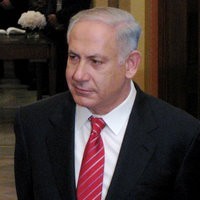As Operation Pillar of Defense, Israel’s recent eight-day campaign in Gaza, drew to a close, it seemed to many Israelis that their worst fears about the Arab uprisings had come to pass. An emboldened Hamas and its allies in Gaza launched an unprecedented number of mortars and missiles farther than ever before, putting more than half of Israel under fire. Egyptian President Muhammad Morsi and other Arab officials openly proclaimed solidarity with Israel’s enemy. While the final tally of Israeli casualties was fairly limited -- six dead and more than 240 wounded -- the panic was not. The cease-fire declaration, which reflected Hamas’ demands more than Israel’s, seemed to confirm that the regional rules had changed and, from Israel’s perspective, not for the better.
In the time since the fighting ended, however, a re-evaluation, at least in some quarters, has set in. Israel, an increasing number argue, achieved many of the relatively modest aims that it had set for itself: It destroyed many of Hamas’s rockets, killed a number of senior Islamist militants and extracted a promise from the U.S. to curtail arms smuggling through Egypt.
But what is truly remarkable, the Israeli security establishment argues, is that Operation Pillar of Defense proved Israel can wage a punishing bombing campaign against Hamas and Gaza’s other factions despite the regional changes that were supposed to have contained it. Indeed, Israel did so with the tacit cooperation of the region’s new Islamist powers. After all, it was an Egypt led by the Muslim Brotherhood that pushed for cease-fire terms that were less detailed than what Hamas originally had demanded. Although Cairo also recalled its ambassador from Tel Aviv, summoned the Israeli ambassador for a dressing down and facilitated the visits of Arab officials to Gaza, these steps were seen in Israel as minor and restrained, whereas Egypt’s cooperation with the U.S. to secure a cease-fire was much more robust.

